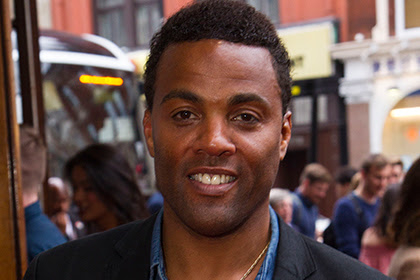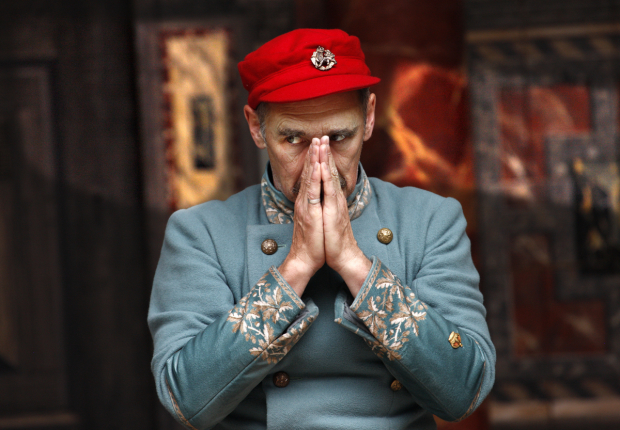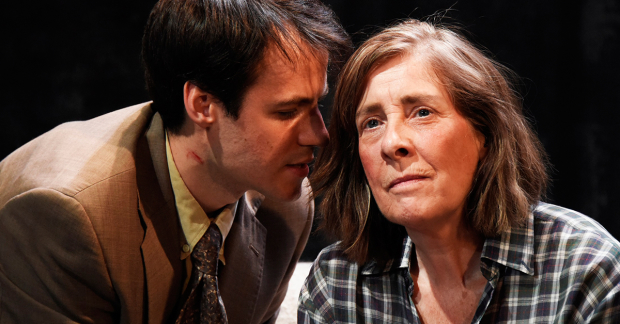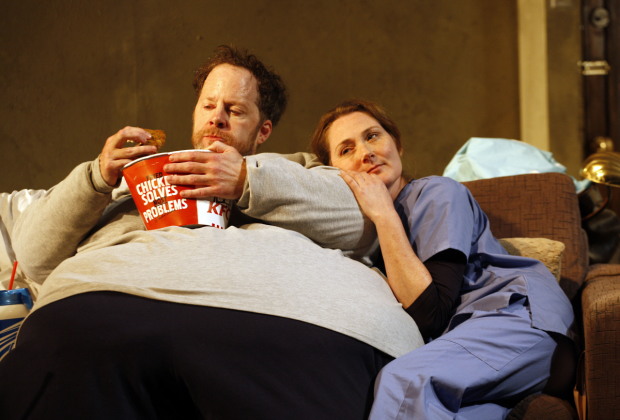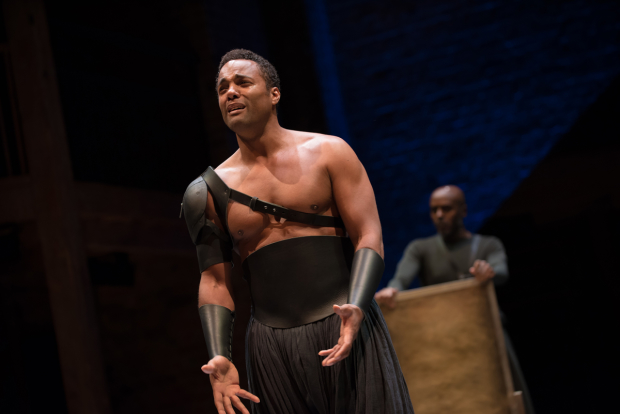Review: Blue Door (Ustinov Studio)
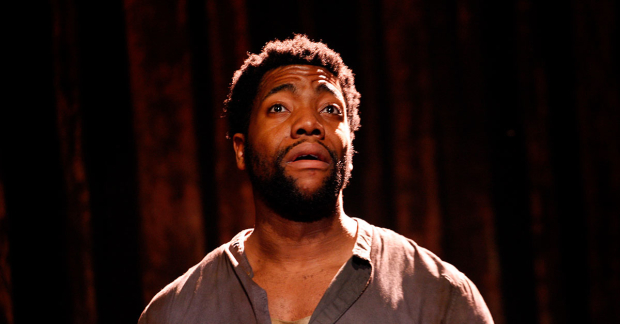
© Simon Annand
It's impossible not to think of Liam Neeson's recent comments when watching Tanya Barfield's startling, truthful play, staged here as part of a season of UK premieres from the Americas. Barfield focuses on one African American man to explore the impact of a tortured and troubled legacy and society's inherent, endemic racism. With the movie star's words still echoing around us, the play, though it was written ten years ago, reveals itself as being painfully pertinent.
The central figure is Lewis, a mathematics professor, whose white wife of 25 years decides to leave him, seemingly prompted by his refusal to attend the Million Man March – a real march in 1995 which called for African American men to march on Washington DC in order to highlight economic and social issues facing them. Lewis is not a particularly politically motivated man, wishing only for academic recognition for his work and acceptance by those around him. But over the course of one night he is visited by his Grandad and Great Grandad – brought up as slaves in America – and replays fraught past conversations he has had with his father.
These ghosts – perhaps a little like an updated Marley and co from A Christmas Carol – are there to remind Lewis of where he has come from and what the men in his family have had to deal with before him. It sounds like a horribly clunky premise, but in the hands of an excellent cast and helped by Eleanor Rhode's sleek directing, it doesn't jar. And the knotty issues touched on by Barfield are explored well. When he talks about arriving to meet his university colleagues for the first time Lewis asks a question that would never occur to a white person in his shoes: "What if they don't know I'm black?"; in an exchange about a holiday with his wife Lewis tries to explain what makes him uncomfortable about the countryside "I can't fade into the country. I can't take a weekend trip without a strained obviousness that I am there". These moments, as well as the often horrendous stories of Lewis' forebears, demonstrate with clarity a little of what it is like to live in a society which ultimately, at its very base, mistrusts you.
Barfield's prose is poetic and vivid and she changes between the characters fluidly and easily. It is only the moments in-between the stories, where the play becomes a little meta-theatrical, that the tension drops. Lewis' sleepless night begins to feel contrived and when the characters talk to each other, time and space ignored, it gets too convoluted. At 90 minutes, the show is short, but the final half hour feels heavy and laboured: it definitely needs a snip.
Fearon gives a strong, scrunched, unhappy performance as Lewis which is compelling throughout and is matched by Fehinti Balogun, who plays all of Lewis' ancestors, and who moves between generations beautifully. They are both a joy to watch, telling simple yet incredibly affecting stories with grace, intensity and humour. David Gregory's penetrating sound designs are also worth highlighting as is Elliot Grigg's clever lighting which relies mostly on one bright, centrally hanging lightbulb to illuminate an otherwise very dark, forest-edged stage.
It's a great production of a play that has heart and important meaning, but also some key structural issues. Still, you shouldn't let that put you off. In today's times Blue Door should be seen.



